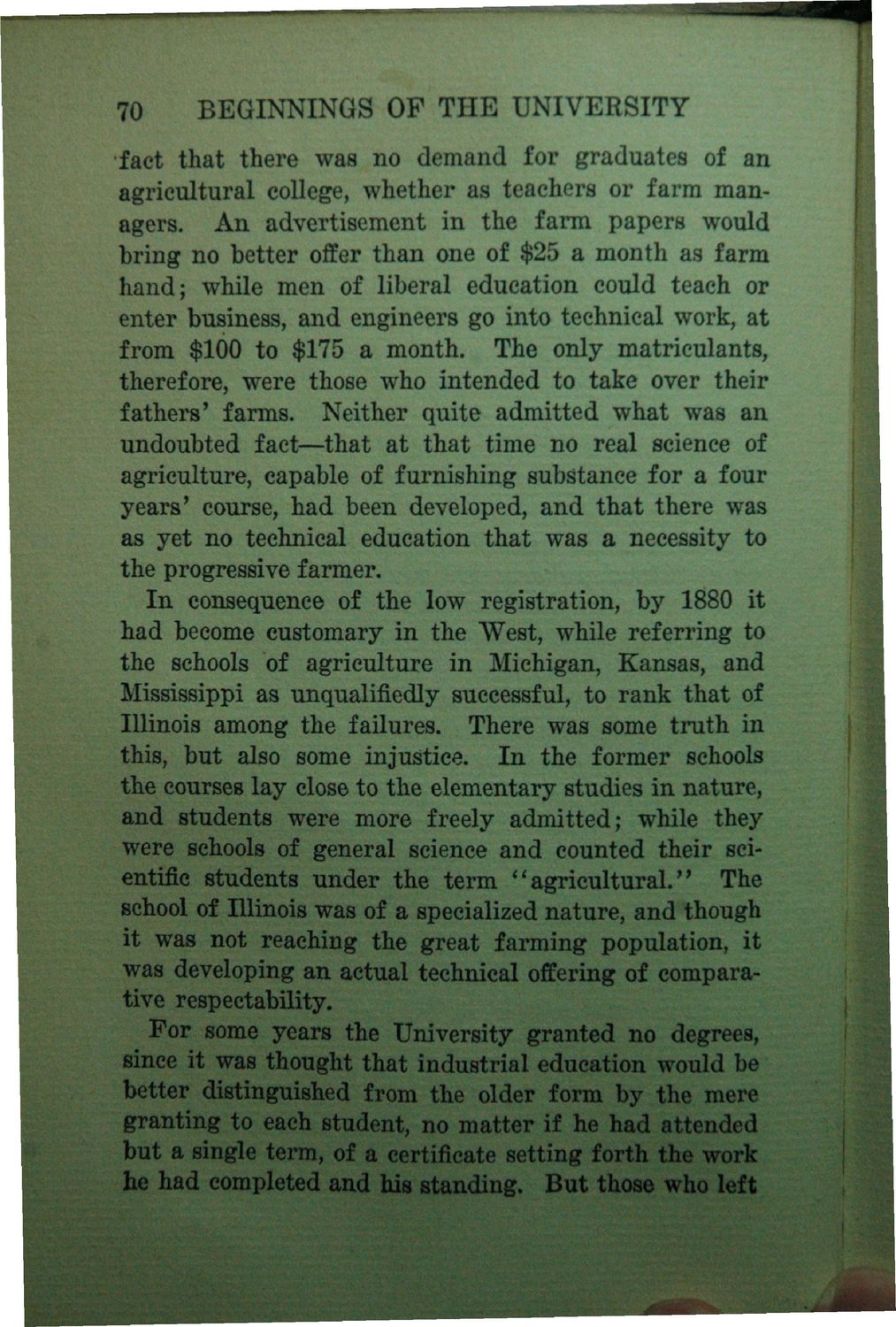| |
| |
Caption: Book - History of the University (Nevins)
This is a reduced-resolution page image for fast online browsing.

EXTRACTED TEXT FROM PAGE:
70 BEGINNINGS OP THE UNIVERSITY •fact that there was no demand for graduates of an agricultural college, whether as teachers or farm managers. An advertisement in the farm papers would bring no better offer than one of $25 a month as farm hand; while men of liberal education could teach or enter business, and engineers go into technical work, at from $100 to $175 a month.j| The only matriculants, therefore, were those who intended to take over their fathers' farms. Neither quite admitted what was an undoubted fact—that at that time no real science of agriculture, capable of furnishing substance for a four years' course, had been developed, and that there was as yet no technical education that was a necessity to the progressive farmer. In consequence of the low registration, by 1880 it had become customary in the West, while referring to the schools of agriculture in Michigan, Kansas, and Mississippi as unqualifiedly successful, to rank that of Illinois among the failures. There was some truth in this, but also some injustice. In the former schools the courses lay close to the elementary studies in nature, and students were more freely admitted; while they were schools of general science and counted their scientific students under the term "agricultural.'' The school of Illinois was of a specialized nature, and though it was not reaching the great farming population, it was developing an actual technical offering of comparative respectability. For some years the University granted no degrees, since it was thought that industrial education would be better distinguished from the older form by the mere granting to each student, no matter if he had attended but a single term, of a certificate setting forth the work he had completed and his standing. But those who left Sai
| |